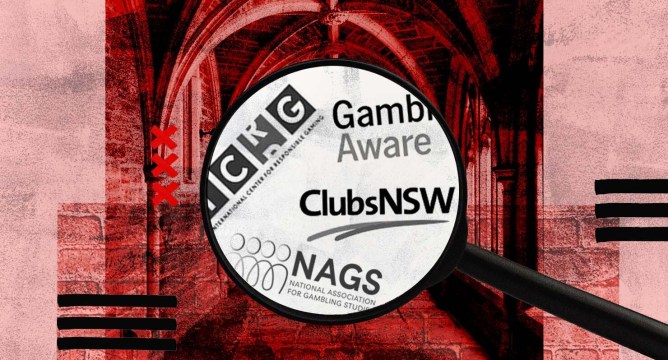On Tuesday, Government Services Minister Bill Shorten all but confirmed the government is leaning against a full ban on gambling advertisements.
“I’m not convinced that complete prohibition works,” he told the ABC’s Q+A, before hinting at which interest group might have been influencing the government’s thinking.
Shorten said free-to-air broadcasters were under “massive attack” by the likes of Facebook and needed gambling advertising revenue to survive: “Some of you might say, ‘Well, bugger them, just don’t worry, we don’t need free-to-air media’ … but free-to-air media is in diabolical trouble.”
Shorten said a tightening of the rules would be the right thing to do, even if it would satisfy neither the “complete abolitionists” nor the “don’t do too much” camp.
The thing is, free-to-air broadcasters are in neither camp: they want no changes to the rules at all.
Just ask the lobby group Free TV Australia, which represents the nation’s commercial television broadcasters, including Nine, Seven and Ten.
“The current comprehensive framework for gambling advertising on television is appropriate and proportionate. No further restrictions should be placed on commercial broadcasters,” the group wrote in a submission to the 2022 inquiry into online gambling and its impacts, headed by the late Labor MP Peta Murphy.
“Any further restrictions would have significant revenue implications for Australian TV networks and their ability to invest in sports; news and current affairs; and Australian content.”
History shows the commercial TV lobby usually gets what it wants. In the middle of the past decade, for example, Free TV ran a campaign aimed at Canberra politicians to slash or scrap the nine-figure annual licence fees paid by the free-to-air broadcasters.
“We are at a critical time for broadcasters,” then chair of Free TV Harold Mitchell told the Australian Financial Review in 2015, warning that 15,000 jobs and a $1.5 billion annual investment in Australian content would be at risk if global competitors such as Netflix, Google and Apple got the upper hand.
By then, the fees had already been slashed several times, most recently in 2013 when they were halved. In the 2016-17 federal budget, fees were reduced again, by about 25% from the previous financial year, costing the government $163.6 million over the forward estimates.
Mitchell said the reduction was “disappointing”. In the following budget, the fees were scrapped.
Monash University head of journalism Johan Lidberg said Free TV was still a “powerful lobby group” that is “well connected and can sway and impact government policy”, despite losing some steam since the age of online streaming began.
“Shorten is right that the free-to-air networks are in dire straits,” he told Crikey. “But in my view, it’s unethical that part of getting the networks out of trouble is built on the misery that is caused by gambling ads. These ads, at times, trigger people who are gambling dependent to spend money they can’t afford to spend, especially in a cost of living crisis.”
When developing a policy that will impact the bottom lines of commercial TV channels, it makes sense for the Labor government to take heed of what those channels want. After all, what government would like to make enemies of a sector that reaches 6.5 million news viewers every day, especially right before a federal election?
Free TV is manifestly aware of the government’s codependency when it comes to its members’ services. As the lobby group wrote in its 2022 election manifesto: “Prominence and accessibility of Free TV services are … essential to ensuring the government’s policy goals are achieved, including those relating to accurate, impartial, and trustworthy news; iconic sporting events; and provision of emergency information.”
Free TV did not respond to a request for comment.
